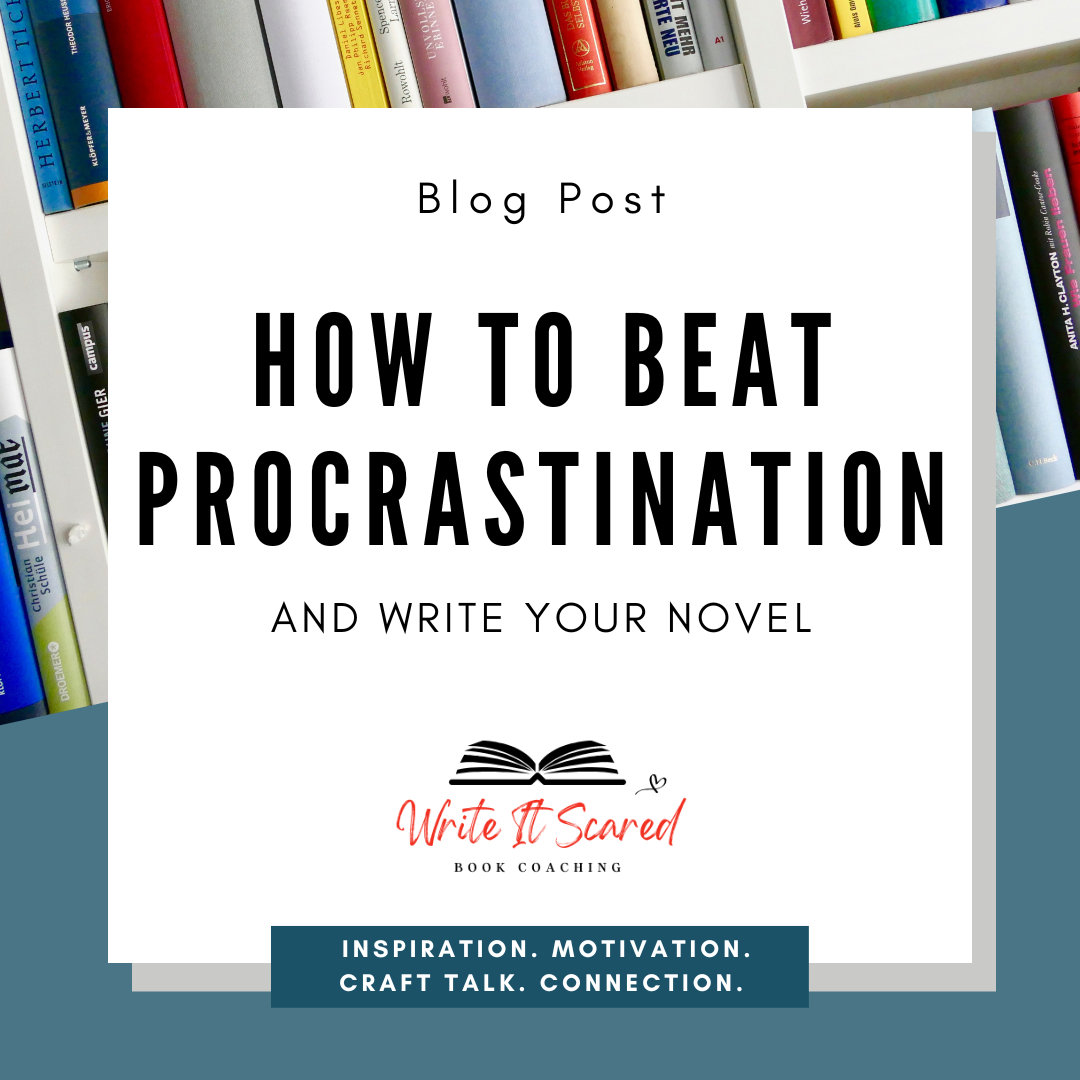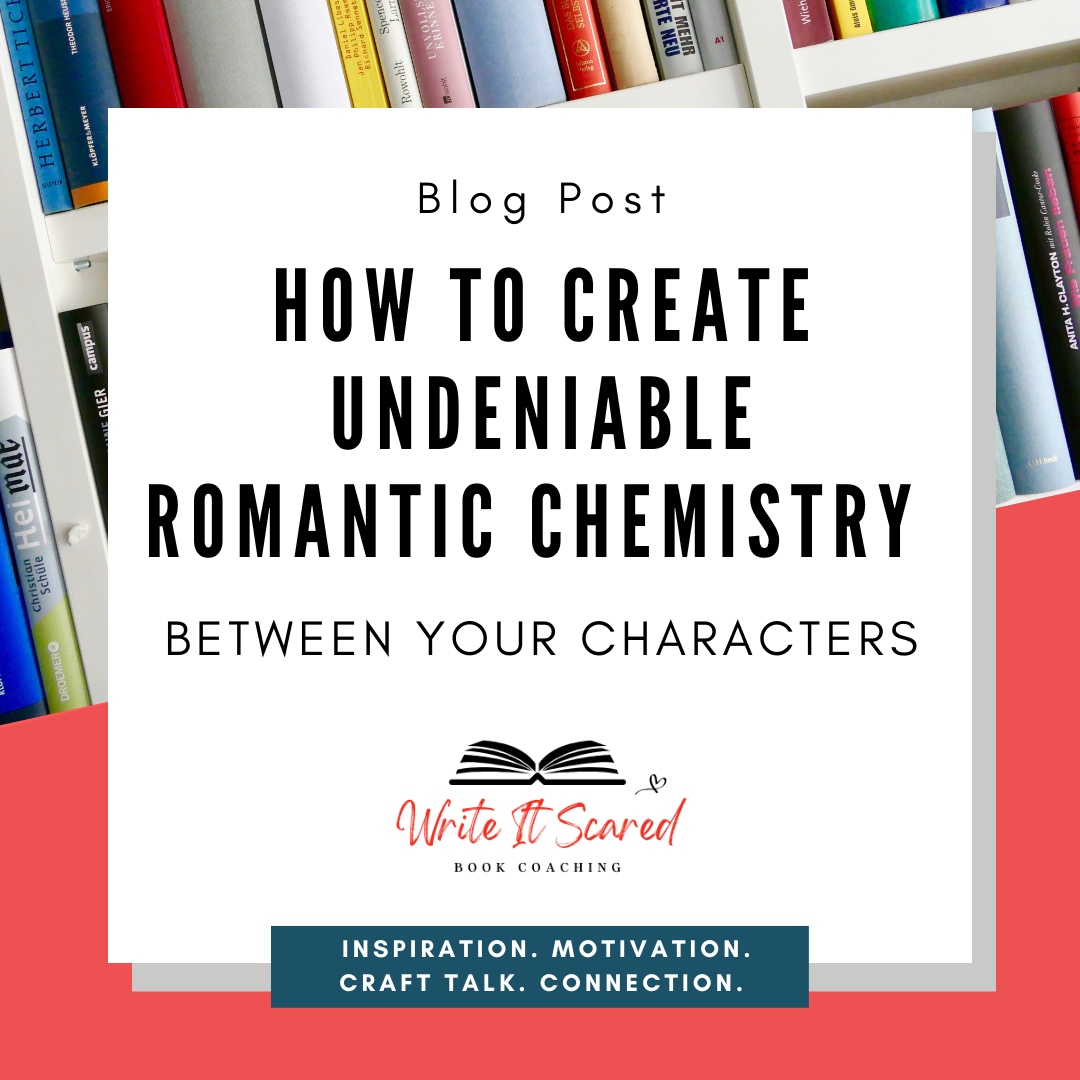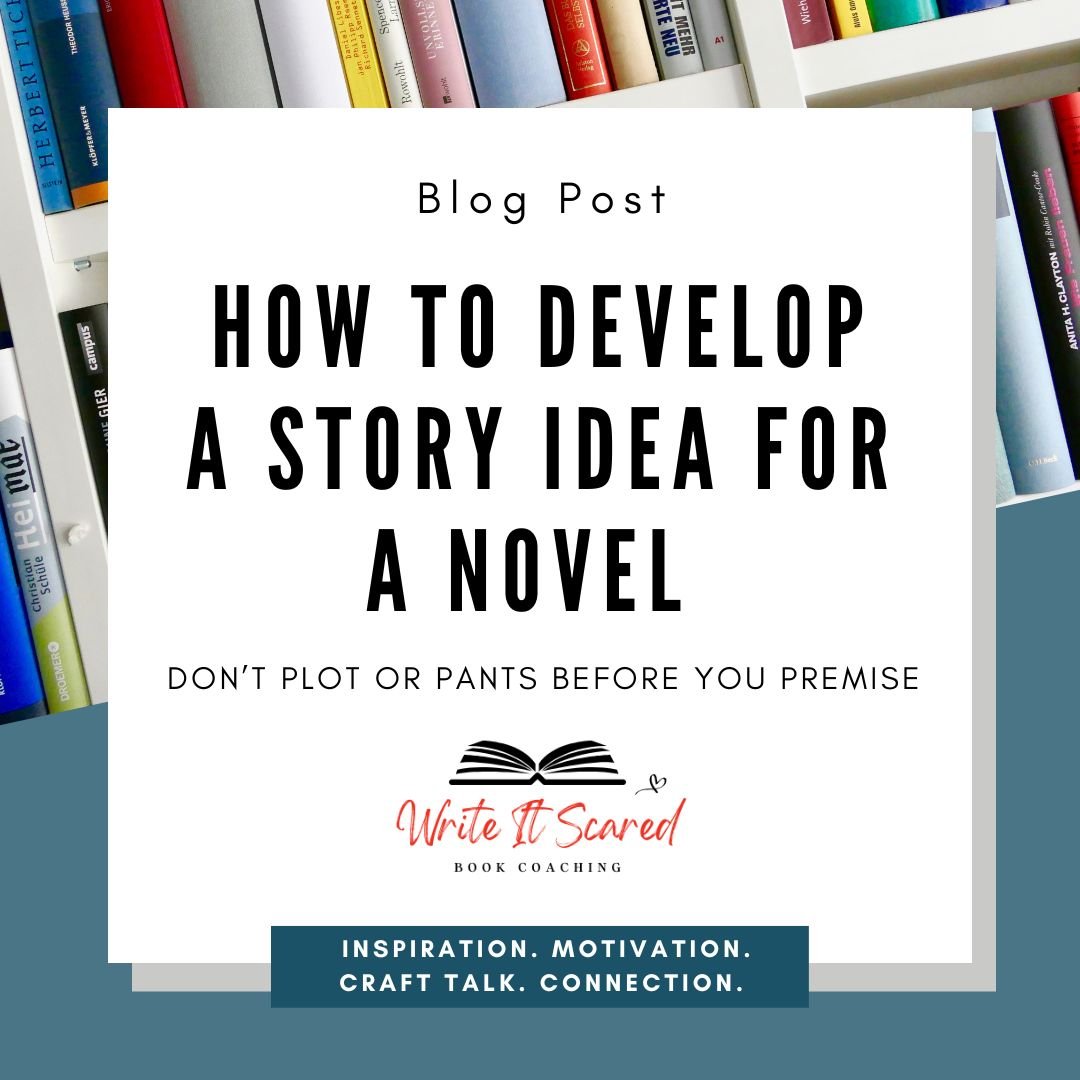
How to Tone Down the Critic and Tune In To Your Inner Writer’s Wisdom
As writers, we often talk about the painful struggle of dealing with our inner critic and are constantly looking for ways to silence that internal writing bully. You know the voice I'm talking about. It’s that pushy one who always says some version of "not good enough."

How To Write Better Fiction By Learning the Art of Deep Reading: The Macro Story Elements
We all want to be better at our craft, and we've likely all heard that to be a good writer, one must first be a reader—and that we need to read A LOT. Stephen King said it pretty plainly in his book On Writing "If you don't have time to read, you don't have the time or the tools to write." But not all reading is equal for learning. Here’s what you need to know about reading like a writer to enhance your storytelling chops.

How to Beat Procrastination and Write Your Novel
As a fiction book writing coach, one of my clients’ top struggles is how often they procrastinate when they “should” be writing. This article discusses several simple strategies to help your rethink and outsmart your procrastination problem so you can get back to writing.

Crafting Complex Characters: Why Villains and Antagonists Matter
Antagonists will create obstacles for your protagonist to overcome. Depending on your intention, they can also highlight specific aspects of your main character and make them more or less relatable. The villain wants to hurt the protagonist — usually in the worst way possible and on purpose!

How to Write Suspense and Tension in Your Novel to Keep Readers Hooked
Suspense vs. tension: Why you can’t have one without the other, and if you have neither, you don’t have a story.

How to Create Undeniable Romantic Chemistry Between Your Characters
Romantic chemistry is that unspoken, elusive connection that you "know" when you see it, or rather when you feel it because it triggers a happy little soup of neurochemicals inside your body that scream more, more, more!

How to Structure a Romance Novel: Beyond the Beats
Today we’ll discuss how to outline a romance novel to hit the beats readers expect and talk about when and where those beats fall. But we’ll also look at character arcs, and themes because you really can’t talk about mapping a story without them!

Romance Writing Essentials: Tips for Writing Romance For Fiction Writers
Romance stories are among the most difficult to execute well. Why? There are many reasons, but the biggest is that structurally, the protagonist’s object of desire is also a major antagonistic force in the story. The love interest is the opposition! Wrangling that conundrum into a satisfying emotional experience takes some finesse, my friends.

Worldbuilding Tools - A Simplified Approach to Creative Worldbuilding for Fiction Writers
Worldbuilding is where writers create the social, cultural, historical, political, and physical realities for our characters.
It feels like a colossal endeavor that we could talk about for days, but we won’t. Today, we’re going to streamline the process by following our curiosity through a series of strategic questions.

How to Find a Writing Community That Will Help You Accomplish Your Goals
Even when we have dozens of characters dancing through our minds, this writing business can get damn lonely. We have big ideas and exciting plots to explore, but many of us don't have anyone to share with, especially when we're new. If you are looking for a community, I wholeheartedly encourage you to find your tribe because the benefits far outweigh the cost!

How to Use Genre To Structure Your Novel
The writing industry puts a lot of focus on the importance of a writer identifying their genre once the book has been written to determine where it will fit in the marketplace, but minimal emphasis on identifying genre before you begin to write it.
This is a problem because a book’s genre is much more than which shelf it sits on in a bookstore.

How to Create Writing Habits that Stick: Applying Atomic Habits
We’re fifteen days into 2024, and I bet most of us are still feeling the freshness, motivation, and excitement of all the opportunities to come … but, sadly, experience teaches that motivation only lasts so long.
What really keeps us in the game is our habits.
Cultivating good writing habits in service of the changes we want to make and the people we want to become.
That’s the secret sauce. Here’s how to do it!

How to Develop a Story Idea For a Novel
Are you writing a novel this year? Maybe it’s your first time, and you’re wondering where to start. Or you’ve done this before, but you’re looking to nail down your process. Either way, this article will help.
Today, we’ll discuss how to explore a fresh idea and develop a firm foundation of the essential elements every story requires so that you can create a rock-solid premise statement for your novel.

Becoming a Better Literary Citizen: Unpacking Gandhi's Wisdom in the Book World
Do you ever feel like your actions don't really matter in the grand scheme of things?
In a world filled with chaos and noise, it's easy to wonder if anyone cares or will even notice our efforts. I'll admit, I've had those moments too (plenty). But life has a way of reminding me that my actions do matter, even if I can't always see the immediate impact.
As Gandhi wisely said, "Whatever you do will be insignificant, but it’s very important that you do it."
This article will show you how to take action to become a better literary citizen and why it’s so important that we do this together!

How to Set Smarter Writing Goals in 2024
There's a huge gap between the dream of holding your published novel in your hands and actually writing it. This article will help you set achievable writing goals in service to your publishing dreams.

How to Write Authentic Dialogue in Your Fiction Novel
When I started writing fiction, I really enjoyed writing dialogue—until I realized how terrible I was at it! And then, when I figured out what I was doing wrong, things got worse before they got better.

How to Handle Personal Experiences and Emotional Wounds in Your Writing
Today, we’re going to talk about an emotionally challenging topic that many writers face but is rarely discussed.
This topic has been on my heart in one way or another for the last month. What clinched my decision to talk about it here was when my client asked for guidance: “How do I write when the messy emotional parts of real life mimic what my characters are going through? When it feels too painful and raw, touch it?”

Crafting Powerful Scenes: A Guide to Writing Scenes That Work
A scene is a unit (think of it like a link) of expressed change, and many links make a story.
Crafting a compelling scene is vital for a writer because no matter how great the story is in concept, it will only hold together the big picture if it works on the scene level.
It doesn't matter how eloquent the writing is; if the scenes don't work, the story will still be a lifeless, shapeless thing that does not hold our interest.

Should You Write a Scene or Summary - A Guide for Fiction Writers
All novels are built from a combination of scene and narrative summary. The balance is the author's choice, but the more we know each component, the better decisions we can make about structuring our story to produce a book others will enjoy.
In this blog post, we'll break down the distinction between scene and summary, see how they are often blended, and examine the rarely discussed middle ground: the half-scene.

How to Craft a Flat or Static Character Arc in a Fiction Novel
So you may have heard the protagonist doesn't change in a flat arc. But this isn’t the whole truth; they can and often do, but the change differs from a positive or negative arc. Also, flat character arcs should not be confused with a flat or one-dimensional character.
